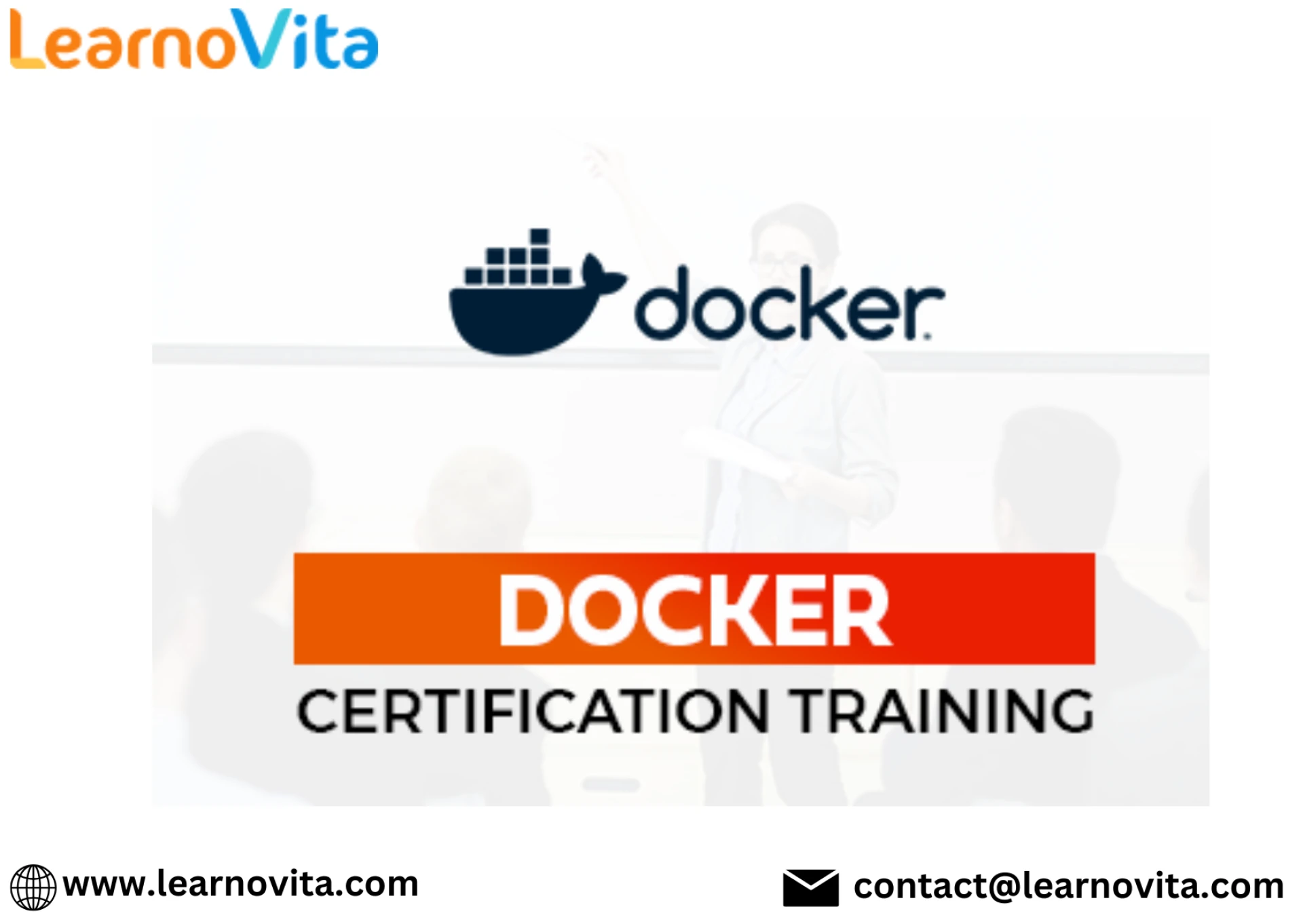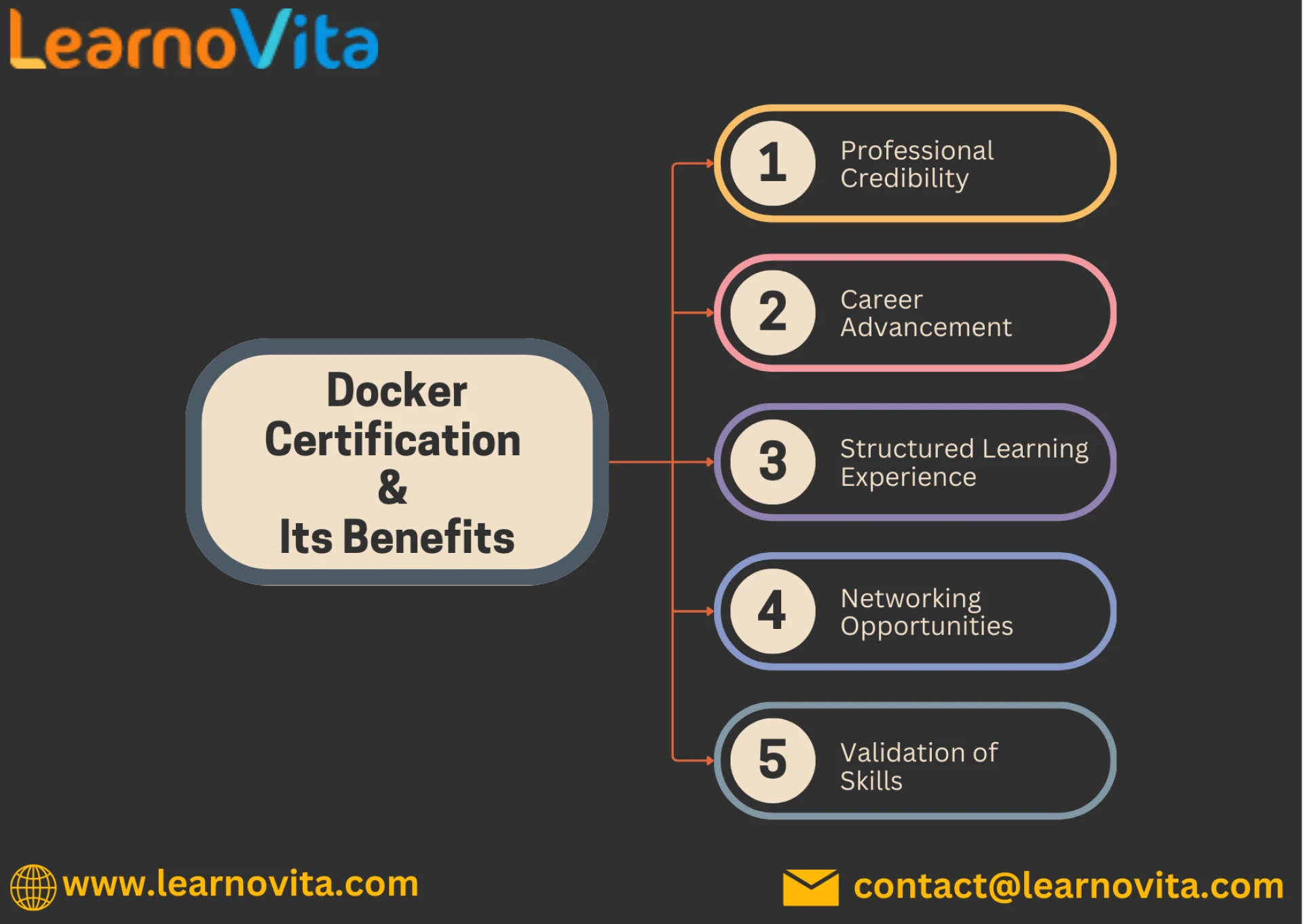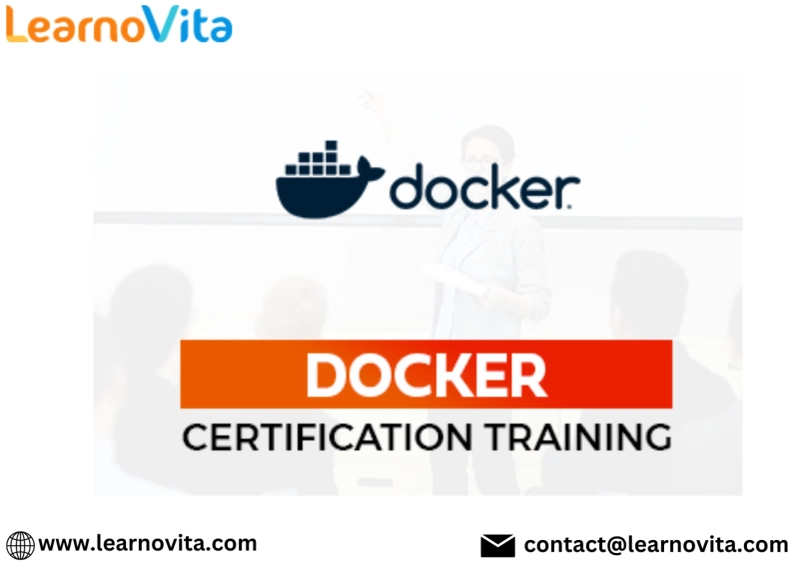As the tech industry continues to evolve, containerization has emerged as a critical component of modern software development. Docker, one of the leading platforms for containerization, offers a certification program that allows professionals to validate their skills. This blog post will explore what Docker certification entails, its benefits, and why it might be a valuable addition to your professional credentials.
Enhancing your career at the Docker Certification Course involves taking a systematic strategy and enrolling in a suitable course that will greatly expand your learning journey while matching with your preferences.

What is Docker Certification?
Docker certification is a formal acknowledgment of your expertise in using Docker and its associated technologies. The primary certification offered is the Docker Certified Associate (DCA). This certification demonstrates your ability to work with Docker in real-world environments, focusing on essential concepts and best practices.
Key Topics Covered in the Certification
The DCA exam tests your knowledge across several critical areas, including:
- Docker Fundamentals: Understanding containers, images, and how they function.
- Networking: Configuring container networks and services.
- Security: Implementing security measures to protect your applications.
- Orchestration: Utilizing tools like Docker Swarm and Kubernetes for managing containerized applications.
- Storage Management: Handling data volumes and persistent storage options.
Benefits of Docker Certification
1. Professional Credibility
Obtaining a Docker certification enhances your professional profile. It serves as proof of your skills and knowledge, which can make a significant difference when applying for jobs or promotions.
2. Career Advancement
As more companies adopt containerization, the demand for Docker professionals is rising. A certification can help you stand out in a competitive job market, potentially leading to better job opportunities and higher salaries.
It's simpler to master this course and progress your profession with the help of Best Online Training & Placement programs, which provide through instruction and job placement support to anyone seeking to improve their talents.

3. Structured Learning Experience
Preparing for the Docker certification provides a structured framework for learning. The comprehensive curriculum ensures you cover essential topics and gain a thorough understanding of best practices and advanced concepts.
4. Networking Opportunities
Being certified can connect you to a community of like-minded professionals. Engaging with others who hold the certification can lead to valuable networking opportunities, sharing of knowledge, and even job referrals.
5. Validation of Skills
For those transitioning into DevOps roles or looking to solidify their expertise, the certification serves as a tangible demonstration of your skills. It shows your commitment to professional development and staying current in the field.
Conclusion
Docker certification is a valuable asset for anyone looking to advance their career in software development or DevOps. With its emphasis on containerization becoming increasingly vital, obtaining this certification can enhance your credibility, open new opportunities, and provide you with a structured learning experience. If you're serious about your professional growth, exploring Docker certification is definitely worth your time and effort.


